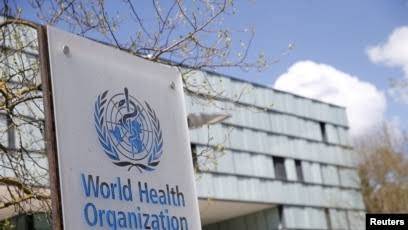WHO Conducts Global Pandemic Response Exercise, See Details
The World Health Organization (WHO) recently conducted a groundbreaking exercise, "Exercise Polaris," to test its new global coordination mechanism for health emergencies. This initiative aimed to strengthen countries' emergency workforces, coordinate the deployment of surge teams and experts, and enhance collaboration between nations.
Exercise Polaris brought together over 15 countries, including Canada, Colombia, Costa Rica, Denmark, Ethiopia, Germany, Iraq, the Kingdom of Saudi Arabia, Mozambique, Nepal, Pakistan, Qatar, Somalia, Uganda, and Ukraine, with additional countries participating as observers. More than 20 regional health agencies and health emergency networks also took part, including Africa CDC, European CDC, IFRC, IOM, and UNICEF.
The exercise simulated an outbreak of a fictional virus spreading globally, allowing countries to test their preparedness and response efforts in a realistic environment. Over 350 health emergency experts connected globally through this exercise, working together to share information, align policies, and activate their response.
The exercise had several key objectives, including:
- Evaluating the effectiveness of the Global Health Emergency Corps (GHEC) framework
- Enhancing collaboration and coordination between countries and global health agencies
- Identifying areas for improvement in pandemic response
The exercise demonstrated that global cooperation is essential in responding to pandemics. According to WHO Director-General, Tedros Ghebreyesus, "No country can face the next pandemic alone. Exercise Polaris shows that global cooperation is not only possible; it is essential."
The exercise highlighted several key findings and takeaways, including:
- Improved Coordination: The exercise highlighted the importance of efficient coordination and interoperability processes in guaranteeing timely interventions in health emergencies.
- Trust and Collaboration: Building trust among countries and global health agencies is critical in responding to pandemics. The exercise demonstrated that collaborative efforts can lead to more effective pandemic response.
- Global Health Security: Exercise Polaris reaffirmed that health is a global issue, requiring a unified and coordinated approach to ensure global health security.
Several experts provided insights into the exercise and its outcomes, including:
- Dr. Mariela MarÃn, Vice Minister of Health of Costa Rica, who emphasized the importance of inter-agency response to international health threats.
- Dr. Soha Albayat from Qatar, who highlighted the need for cultivating trust before a crisis occurs, stating that "the foundation of our collaborative efforts is significantly stronger than in years past."
- Dr. Mike Ryan, Executive Director of WHO's Health Emergencies Programme, who noted that the Global Health Emergency Corps has evolved into a powerful platform, building on practice, trust, and connection.
The exercise has significant implications for global pandemic response. The exercise demonstrated that countries can work together effectively to respond to pandemics, but there is still room for improvement. Future directions include:
- Strengthening Global Health Infrastructure: Enhancing global health infrastructure, including emergency response systems and coordination mechanisms.
- Improving International Cooperation: Fostering greater international cooperation and collaboration to respond to pandemics.
- Enhancing Preparedness: Continuously testing and evaluating preparedness and response efforts to identify areas for improvement.
In conclusion, Exercise Polaris marked an important step forward in global pandemic response, highlighting the importance of collaboration, coordination, and trust among countries and global health agencies. As the world continues to face pandemics and health emergencies, it is essential to build on this momentum and work towards a more unified and effective global response.


